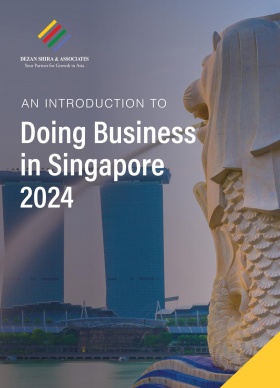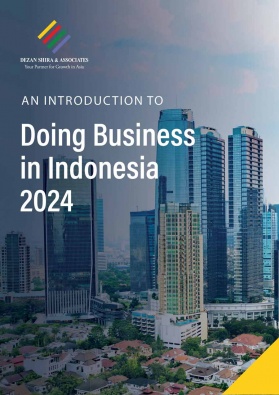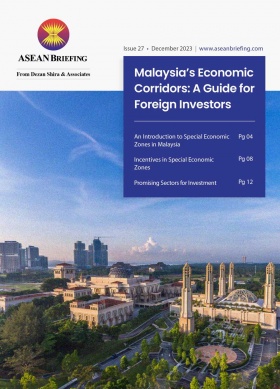Singapore’s Growing Investments in Vietnam: Key Sectors
Vietnam and Singapore have a strong and expanding strategic partnership in trade and investment, defined by substantial achievements and cooperation.
The bilateral relationship between the two countries dates to 1973, with noteworthy agreements being the Bilateral Investment Treaty in 1992 and the Connectivity Framework Agreement in 2005. These agreements have made it easier for businesses to work together and coordinate their policies.
The city-state accounted for 18 percent of total FDI in Vietnam in 2023, amounting to US$6.9 billion, an increase of 5.4 percent year-on-year.
As of 2024, over 3,000 Singaporean companies are investing in Vietnam, making Singapore the largest foreign investor in the country. Singaporean firms have invested significantly in various sectors, including manufacturing, real estate, retail, and financial services.
Critical sectors for Singapore’s investments in Vietnam
Singapore’s investment in Vietnam spans multiple key industries, significantly driving Vietnam’s economic advancement. This diverse investment strategy not only enhances Vietnam’s industrial capacity but also cements its position as a premier destination for foreign direct investment in Southeast Asia.
Manufacturing and processing
Vietnam is a key target for multinational companies looking to diversify their supply chains outside China, known as the “China+1” strategy. Over the past decade, Vietnam has become a hub for global consumer electronics manufacturing, accumulating significant experience and technical expertise in this area.
Singapore’s Sembcorp Industries operates the Vietnam-Singapore Industrial Parks (VSIPs), which are major manufacturing hubs in various Vietnamese provinces such as Binh Duong, Hai Phong, Quang Ngai, and Nghe An.
Foxconn Singapore, a prominent player in the electronics manufacturing industry, is expanding its operations in Vietnam through significant investments, Foxconn will begin producing Nokia’s 5G AirScale equipment, including AirScale Massive MIMO radios at its factory in Bac Giang, Vietnam.In addition, Foxconn Singapore has won approval for two projects in Vietnam’s Quang Ninh province valued at US$551 million. The projects will produce smart entertainment products and smart-system equipment, with investments of US$263.7 million and US $287.2 million, respectively. Construction is projected to be complete by July 2026, with production beginning in May 2027.
Real estate
Vietnam’s real estate sector has experienced robust growth, driven by economic expansion, urbanization, and increasing disposable incomes. Major cities like Ho Chi Minh City and Hanoi have seen significant development in residential, commercial, and industrial real estate. The country’s urbanization rate is around 40 percent, with projections indicating it could reach 50 percent by 2030, and thus will increase demand for residential and commercial properties.
CapitaLand, a Singapore-based real estate company has invested approximately US$1.2 billion in the Vietnamese real estate market. Their portfolio includes several high-profile projects such as the CapitaLand Landmark 81, a major mixed-use development in Ho Chi Minh City.
Energy
Vietnam’s energy mix is dominated by coal, natural gas, and hydropower. Coal-fired power plants are the largest source of electricity, followed by gas-fired plants and hydropower. As of 2023, Vietnam’s total installed electricity capacity is over 60 GW. Coal-fired power plants contribute about 50% of the electricity generation, followed by hydropower (about 20%), and natural gas (about 20%). Renewable sources, including solar and wind, have been growing rapidly but still represent a smaller portion of the mix.
Sembcorp, Singapore’s state-owned energy and urban development enterprise, has invested over US$1 billion in Vietnam’s power generation sector since the early 2,000s, including the Phu My 3-power plant, the country’s first independent power project. They also provide rooftop solar energy solutions.
Trade agreements boosting investment
Vietnam’s and Singapore’s membership in major trade agreements, such as the Regional Comprehensive Economic Partnership (RCEP) and the Comprehensive and Progressive Agreement for Trans-Pacific Partnership (CPTPP), has further bolstered their investment ties. The RCEP, which includes 15 Asia-Pacific countries, aims to reduce tariffs and increase market access among member states, facilitating smoother and more extensive trade and investment flows. The CPTPP, a high-standard trade agreement among 11 countries, promotes liberalized trade and investment, enhanced regulatory coherence, and robust intellectual property protections. These agreements create a more favorable business environment, making it easier for Singaporean companies to invest and operate in Vietnam, and vice versa.
Conclusion
Singapore’s investments in Vietnam illustrate a robust and dynamic partnership that significantly impacts both economies. The historical agreements and strategic collaborations between the two countries have fostered a strong foundation for ongoing investment. With Singapore accounting for a substantial portion of foreign direct investment in Vietnam, its presence is particularly notable across key sectors such as manufacturing, real estate, and energy.
About Us
ASEAN Briefing is produced by Dezan Shira & Associates. The firm assists foreign investors throughout Asia and maintains offices throughout ASEAN, including in Singapore, Hanoi, Ho Chi Minh City, and Da Nang in Vietnam, in addition to Jakarta, in Indonesia. We also have partner firms in Malaysia, the Philippines, and Thailand as well as our practices in China and India. Please contact us at asean@dezshira.com or visit our website at www.dezshira.com.








